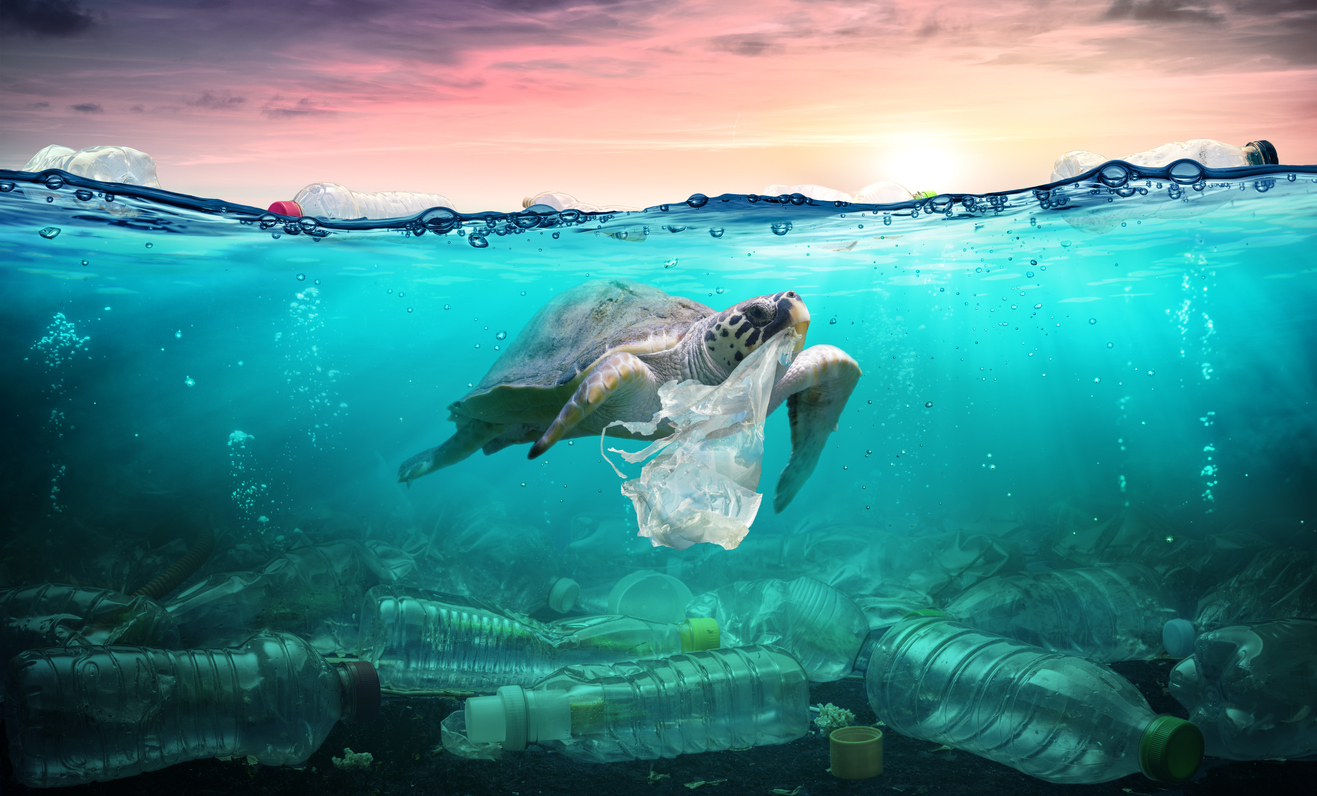Is bottled water bad for you?
Would you knowingly drink a bottle of chemicals or eat a piece of plastic? In effect you are doing just so when you choose to drink bottled water.
Facts on why it is bad for our health
A recent German-led study found that a single bottle of bottle water contained nearly 25,000 chemicals!
Plastic Water bottles are often stored in the desert in the hot sun or out in the open on container ships traveling across the world where the plastic gets soft and the chemicals leach into the water.
Plastic bottles contain chemicals which are known endocrine disruptors that affect hormones of humans and wildlife.
Facts on why it is bad for the environment
Bottling water is bad for the environment as it produces more than 2.5 million tons of carbon dioxide.
Did you know that it takes 3 litres of water to produce 1 litre of bottled water.
More than five trillion pieces of plastic are already in the oceans, and by 2050 there will be more plastic in the sea than fish, by weight, according to the Ellen MacArthur Foundation.
Did you know that Americans are said to use 2.5 million plastic bottles every hour. Every year, 8 million metric tons of plastic end up in our oceans. which is equivalent to five grocery bags filled with plastic for every foot of coastline in the world.
The process of producing bottled water requires around 6 times as much water per bottle as there is in the container.
14% of all litter comes from beverage containers. When caps and labels are considered, the number is higher.
Approximately 1 million sea birds die from plastic each year.
At least two thirds of the world’s fish stocks are suffering from plastic ingestion.
Australia ’s annual use of bottled water generates more than 60,000 tonnes of greenhouse gas emissions – the same amount that 13,000 cars generate over the course of a year.
More than 145.7 million litres of oil was used in the production, transportation, refrigeration and recycling/disposing of bottled water in Australia in 2009-10
Assuming the 582.9 million litres of bottled water produced in 2009-10 is in litre bottles, according to these figures, 373 million of those bottles will end up as waste.
To be honest this is just a selection of stats that I have come across. There is clearly no doubt in my mind that bottled water is bad for me and bad for the earth! Below you will find some videos discussing some of the reasons why bottled water is not the healthy or eco choice.
What are your options when it comes to water?
Did you know that the human body is comprised of 70% water, so it's not much of a stretch to say that "the basis of vitality and long life is water."
If you want to feel good and be at your optimal health level, you should drink water on a daily basis. But not just any type of water.
What are your options when it comes to water?
Tap Water
Tap water is a healthier option than soft drinks. But according to the Environmental Working Group, there have been 315 pollutants found in America's tap water since 2004, and over half of these pollutants are completely unregulated and can legally exist in any amount.
At the current levels of contamination, the public is starting to question the quality of tap water and wonders if it is safe enough to drink. Based on these facts, it's no wonder that the demand for Kangen Water® is constantly increasing. Reference - EWG
Tap Water in America
National Geographic - Water in America: Is It Safe to Drink?
National Geographic - We can’t assume our water is safe to drink.
How about Tap Water in Australia
- some interesting videos and articles here:
Better boil ya billy: when Australian water goes bad
Arsenic in drinking water
Salt (sodium chloride) in drinking water
Households advised to run taps for 30 seconds amid lead poisoning fears
Yass water is dirty and smelly, but is it making people sick?
Bottled Water
Bottled water is not necessarily healthier than tap water and yet it costs much more! Although associated with healthy water, bottled water is not guaranteed to be any healthier than tap water. Often the only difference is the added minerals which have no proven health benefits.
A four-year study by the Natural Resources Defense Council shows that 1/3 of the bottled water tested contains levels of contamination which exceed allowable limits. Bottled water can also be slightly acidic, which may affect your body's pH balance. Finally, the environmental impact caused by the production and disposal of plastic bottles is harmful to our ecosystem. Reference - NRDC
National Geographic - Why Tap Water is Better Than Bottled Water
Reverse Osmosis Water
Reverse Osmosis is a filtering process which may be effective in areas that do not receive municipally treated water and is commonly used in bottled water facilities. The problem with this process is that dangerous chemicals like pesticides, herbicides, and chlorine are molecularly smaller than water and can pass freely through the filter. Reverse osmosis removes healthy, naturally occurring water minerals. These minerals not only provide good taste, they also serve a vital function in the body's system. When stripped of these minerals, water can be unhealthy. Also, 2-3 gallons of water are wasted for every gallon of purified water produced.
Dr Axe - Is Reverse Osmosis Water Good for You? Or Does It Over-Filter?
Kangen Drinking Water
This type of water is perfect for drinking and healthy cooking. This electrolytically-reduced, hydrogen-rich water works to restore your body to a more alkaline state, which is optimal for good health.
Usage: drinking, food preparation, coffee and tea, soups and stews, and watering plants.
Kangen Water® is also friendly to your budget and to the Environment. Forget about buying and storing all those expensive plastic water bottles!














